To obtain information contained in document files on this page in an accessible format please contact the Institute for Advanced Study by phone: (812) 855-1513 or email: ias@indiana.edu.
National Endowment for the Humanities Summer Institute 2016
for college and university teachers
In 2016, IAS hosted the “Arts of Survival: Recasting Lives in African Cities” Summer Institute for College and University Faculty, supported through a National Endowment for the Humanities Grant. The Institute brought together twenty-one faculty and three graduate students from universities across the United States with five faculty conveners for discussions of life and art in Nairobi, Kenya; Accra, Ghana; post-Katrina New Orleans; Lagos, Nigeria; and Port-au-Prince, Haiti.
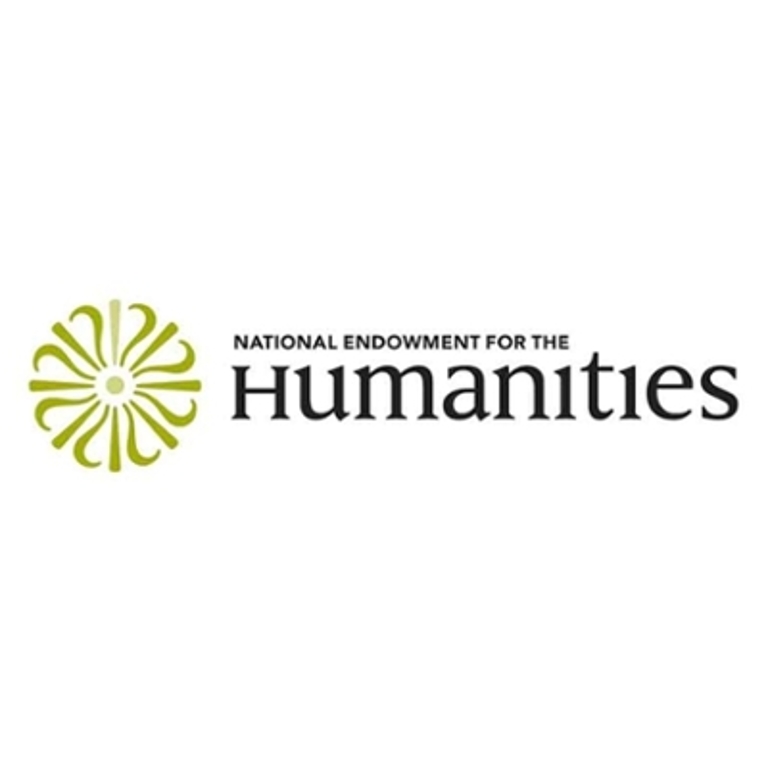
Program overview
Description
Our 2016 NEH Summer Institute, "Arts of Survival: Recasting Lives in African Cities" explores contemporary urban culture and arts in African and African diaspora cities--Accra, Lagos, Nairobi, New Orleans and Port-au-Prince. These cities share African roots but are distinctive because of the unique paths that subsequently shaped them: landscapes and histories; multiple languages; waves of immigrants who brought and continue to bring their labor, culture and creativity; and the sometimes tragic events, both “natural” (hurricanes and earthquakes) and man-made (legacies of colonialism and slavery, political violence, and negligence), that these cities have undergone. Our goal is to examine how art engages the political and social hierarchies embedded in these cities and often recasts marginal or precarious lives into lives that exceed their constraining structures.

Our rationale
College and university teachers from across the United States are invited to take part in our exciting three-week Institute, “Arts of Survival: Recasting Lives in African Cities.” We anticipate a lively and convivial institute as we explore together contemporary urban culture and arts in five exemplary cities: Accra, Lagos, Nairobi, New Orleans and Port-au-Prince. Sharing African roots, these cities are nonetheless distinctive because of the unique paths that have shaped them: landscapes and histories; their multiplicity of old and invented languages; their many waves of immigrants who brought and continue to bring their labor, culture and creativity; and the sometimes traumatic, tragic events, both natural and social, that these cities have experienced. Through in-depth case studies of each of these cities and their arts and an immersive experience in New Orleans, our goal is to help participants grasp, both intellectually and viscerally, the intricate workings of urban spaces in Africa and its Atlantic diaspora. By examining music, literature, visual arts, festivals, and films, participants will learn, through the unique lens of individual artists, how urban identities are recast in each city, particularly in the face of historical and contemporary catastrophe.
Like all cities, but especially those of "the South," marked by poverty and palpable inequity, these cities, which are uneven in their development, are typically described as overpopulated, unruly, unsanitary, dangerous, and as sites of or for immoral behavior. Yet they are vibrant beehives of creativity, whose products and events travel far, becoming "global" or "world" culture—regardless of the limits of these characterizations, limits we will examine.
In undertaking this comparative study of the arts, we have several goals. First, we aim to enable Institute faculty and participants to develop a deep understanding of the lives of individual cities, their challenges and possibilities, and a broad view of the richness, complexity and diversity of contemporary urban experiences across Africa and Africa's Atlantic diaspora.
Social categorizations, such as class, race, religion, and ethnicity, are typically reinforced spatially in cities. But bounded identities often collapse in the messy entanglements of cultural and artistic products and events that tend to be fluid, complex and improvisational. The most important questions the Institute asks, then, center on whether urban public space—even as it breaks taboos and threatens "order"—may play a distinctive and critical role in reworking social relations, across these cities, contesting abusive power, and in constituting a sense of local, national and even transnational belonging.
Second, we strive to make visible the distinctive capacities and innovations of a range of artistic forms and media. Innumerable forms flourish in cities—fashion, film, visual arts, hip hop, dance, stand-up comedy, spoken word, poetry, prose, festivals, foods, blogs, television, radio and rumor, graffiti, comics and cartoons. We will examine many of these forms as they give expression to subjectivities and sensibilities arising in the cityscape.
In a scholarly context where the area studies model has been critiqued for promoting a static view of Africa, the Institute proposes a transnational, transcontinental scholarly engagement with the cultures and arts of African and African diaspora cities. The Institute will enable a productive dialogue in which participants develop broad, transnational perspectives and reconsider conventional wisdom on African cities: for example, the claims for their corruption, whether cultural or moral, or, alternatively, for their backwardness. The arts re-introduce and give voice to the human dimension and experience of African cities.
Ultimately, the Institute will strive to develop a set of conceptual tools and models for studying and teaching the complex interaction and mutual influence between art and everyday life in urban spaces, tools and models that can be applied to other African and non-African sites and arenas.
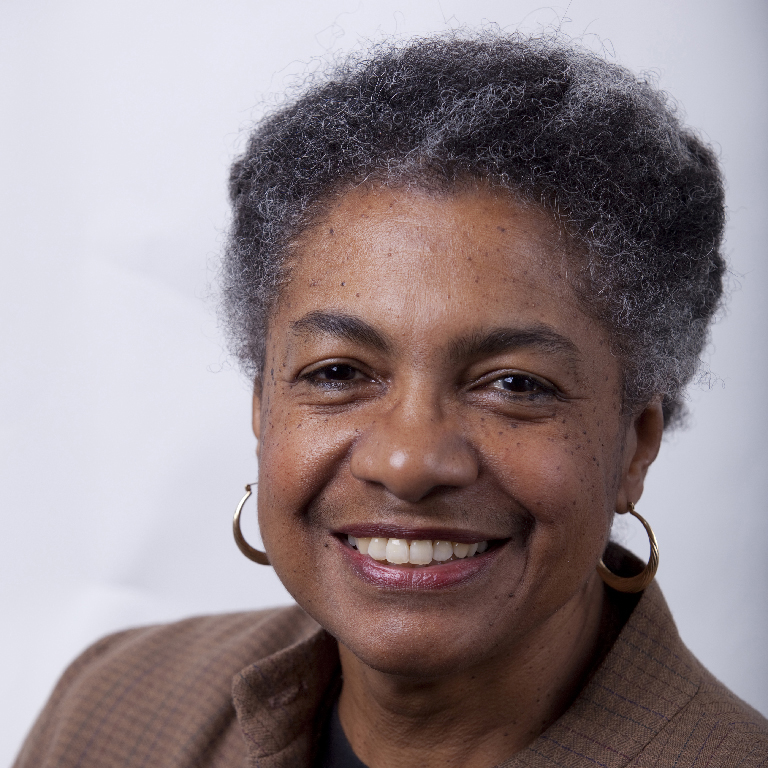
Eileen Julien, Co-Director
Eileen Julien is Professor of Comparative Literature, French and Italian, and African Studies at Indiana University Bloomington. Among her publications are articles on Josephine Baker’s films of the 1930s, the 1956 Présence Africaine conference in Paris, gender and nationalism in works by Wole Soyinka and Mariama Bâ, the art of making New Orleans gumbo, and the “extroverted” African novel; a monograph, African Novels and the Question of Orality (1992), focusing on the relationship between “indigenous” or “local” African resources, such as oral traditions, and contemporary “global” forms such as the novel; a memoir, Travels with Mae: Scenes from a New Orleans Girlhood (2009); and several co-editions, including the forthcoming Locations and Dislocations of African Literature: A Dialogue Between Humanities and Social Science Scholars. A comparative study of modernity in Senegalese literature and arts is in the works. Recipient of Bunting Institute, Fulbright, and Guggenheim awards, Julien has served as President of the African Literature Association; Founding Director of the West African Research Center, Dakar, Senegal; and Executive Director of the David C. Driskell Center for the Study of the African Diaspora, University of Maryland. In 2007, she co-founded the New Orléans Afrikan Film and Arts Festival. She is currently Director of the Institute for Advanced Study at Indiana University.
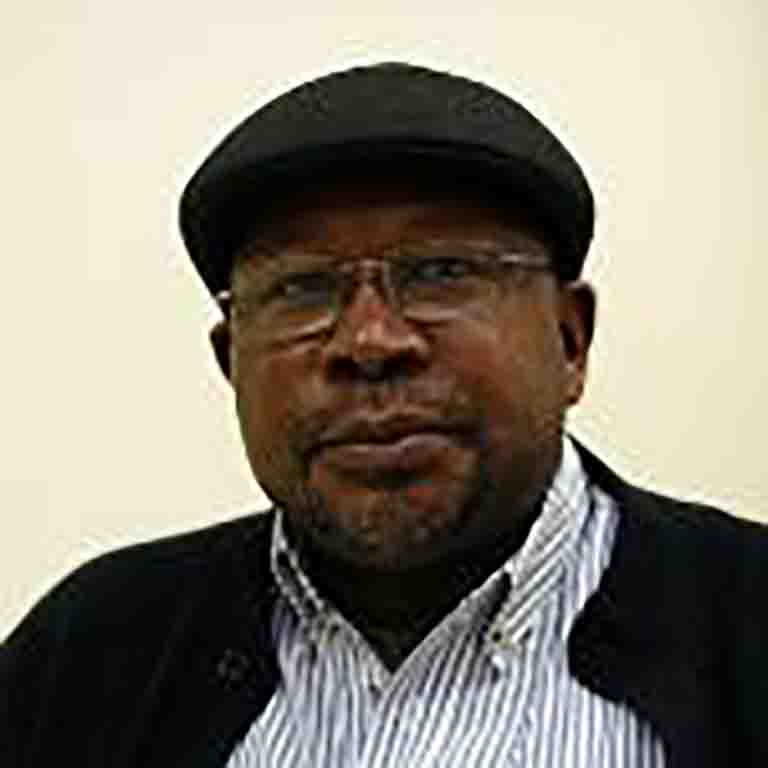
James Ogude, Co-Director
James Ogude, University of Pretoria. Professor Ogude is a Senior Research Fellow and the Deputy Director at the Centre for the Advancement of Scholarship, University of Pretoria - a position he took up at the beginning of May, 2013. Until his recent appointment he was a Professor of African Literature and Cultures in the School of Literature and Language Studies at the University of the Witwatersrand, where he worked since 1994, serving as the Head of African Literature and also Assistant Dean – Research, in the Faculty of Humanities. He is the author of Ngugi’s Novels and African History: Narrating the Nation. He has also co-edited a total of four books and one anthology of African stories. The most recent co-edited book is: Rethinking Eastern African Literary and Intellectual Landscapes. Professor Ogude has published numerous articles in peer reviewed journals in the area of African Literature and Popular Culture in Africa, appearing in leading journals such as Research in African Literatures and PMLA. His research interests include the African novel and the postcolonial experience in Africa. More recently his research focus has shifted to popular cultures and literature in Africa, especially with special focus on African urban and city identities. Ogude is the Principal Investigator of a University of Pretoria research project on the African philosophy of Ubuntu which attracted major funding from the Templeton World Charity Foundation to undertake research on, “The meaning and value of Ubuntu in human and social development in Africa.”
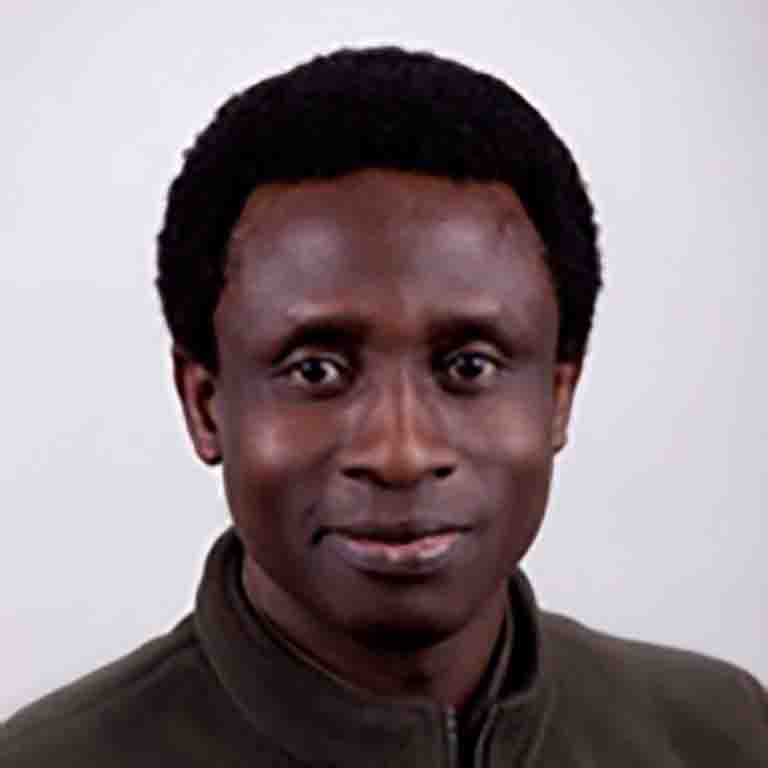
Akin Adesokan, Faculty
Akin Adesokan is Associate Professor of Comparative Literature, and of Cinema and Media Studies at the Media School at Indiana University, Bloomington. His research interests are in twentieth- and twenty-first century African and African American/African Diaspora literatures and cultures, global postcoloniality, African cinema and contemporary global cinemas, non-fictional prose, and cultural theory. His books include Roots in the Sky, a novel, and Postcolonial Artists and Global Aesthetics. His writings have also appeared in AGNI, Screen, Social Dynamics, African Affairs, Black Camera, Research in African Literatures, and Textual Practice, as well as in numerous edited volumes. He has completed an English translation of Isaac Delano’s Aye D’Aye Oyinbo, a Yoruba-language novel about colonialism in Nigeria, and is co-editor of a forthcoming volume on the work of Daniel Fagunwa, the pioneer Yoruba novelist. He is a Contributing Editor of The Chimurenga Chronic, the Cape Town-based journal of politics and ideas. He is currently at work on a manuscript about the changing character of Lagos, the cultural capital of Nigeria.
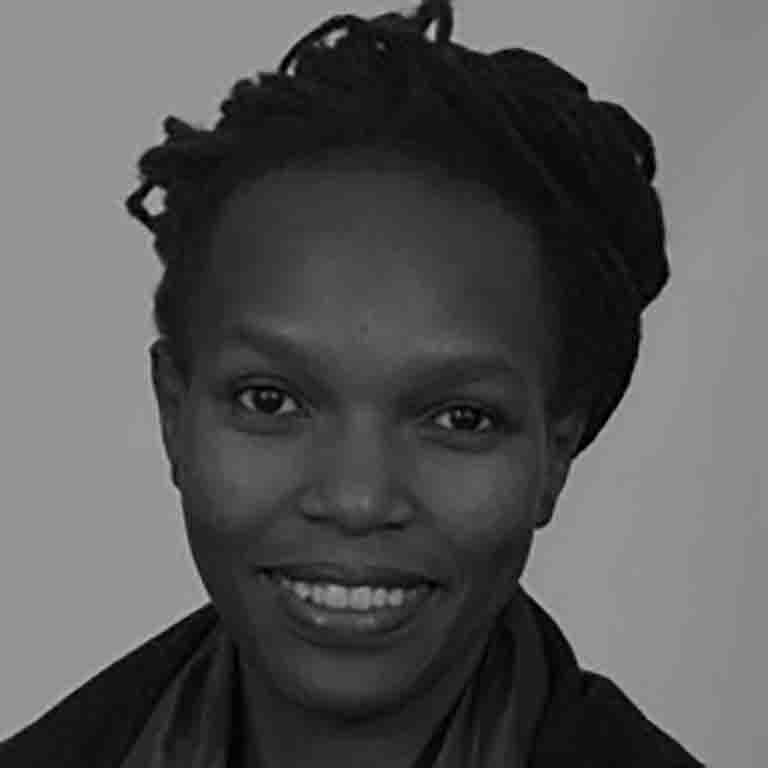
Grace A Musila, Faculty
Grace A Musila is Associate Professor of English at Stellenbosch University, South Africa. Her research interests include East and Southern African literatures, African popular culture, gender studies, African intellectual archives, and postcolonial whiteness in Africa. Her varied publications include journal articles and book chapters on urban texts in Africa, focusing on genres such as rumor, stand-up-comedy and blogs. She is the author of A Death Retold in Truth and Rumour: Kenya, Britain and the Julie Ward Murder (2015). She also co-edited the 2012 essay collection Rethinking Eastern African Literary and Intellectual Landscapes. In 2011 she was a Postdoctoral Fellow of the American Council of Learned Societies African Humanities Program. She teaches undergraduate and graduate courses on East and West African literatures, with emphasis on urban popular texts in and canonical fiction, including the texts set in Accra included in this Institute. She has supervised graduate dissertations on contemporary urban fiction from and set in cities such as Accra, Harare, Nairobi and Addis Ababa.
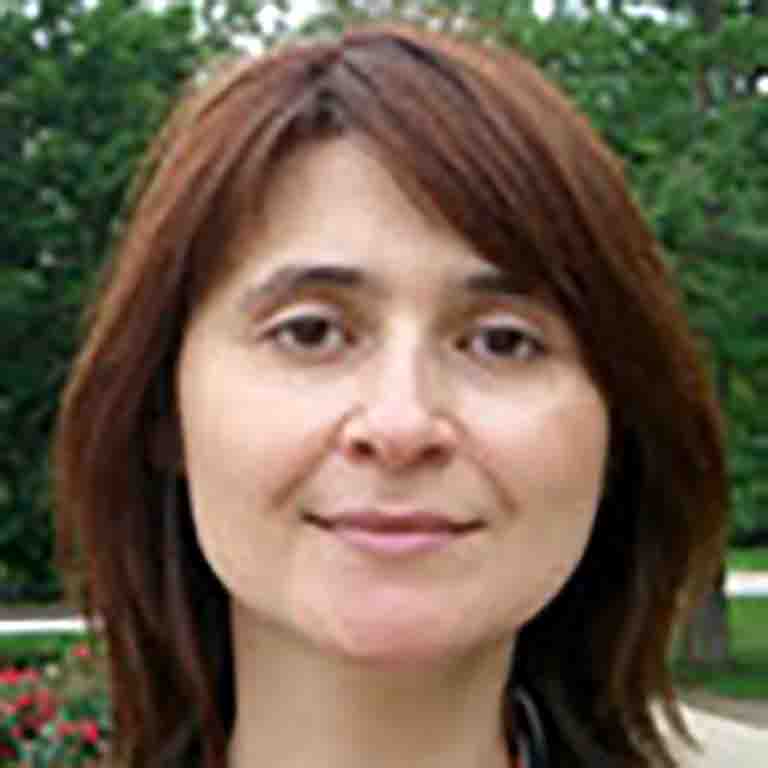
Oana Panaïté, Faculty
Oana Panaïté is Associate Professor of French at Indiana University, Bloomington. Her research focuses on contemporary literature in French from metropolitan France, Africa, and the Caribbean. She is the author of Des littératures-mondes en français. Écritures singulières, poétiques transfrontalières dans la prose contemporaine / On World-Literatures. Singular Writing and Transfrontier Poetics in Contemporary Literature in French (Rodopi, 2012) and the editor of a special issue of L’Esprit créateur. The International Quarterly of French and Francophone Studies entitled ‘La Pensée littéraire/The Idea of Literature’ (Fall 2014). She is currently completing a book on the colonial fortune in contemporary French-language fiction and editing two volumes on the pedagogy and theory of contemporary literature in French from a dialogical perspective. She has published articles in numerous journals and volumes, such as Littérature, French Forum, Nouvelles Écritures Francophones, Modern Language Notes and Enjeux identitaires dans l'imaginaire francophone (Wissenschaftlicher Verlag Trier, 2013), Lire contre l'auteur (Presses Universitaires de Vincennes, 2012), and L'Autorité en littérature. Exercice, partage, contestation (Presses Universitaires de Rennes, 2010). She held the "Chaire des Amériques" as a Visiting Professor at the Institut des Amériques, Université de Haute- Bretagne – Rennes 2 (France) in the Fall of 2013.

